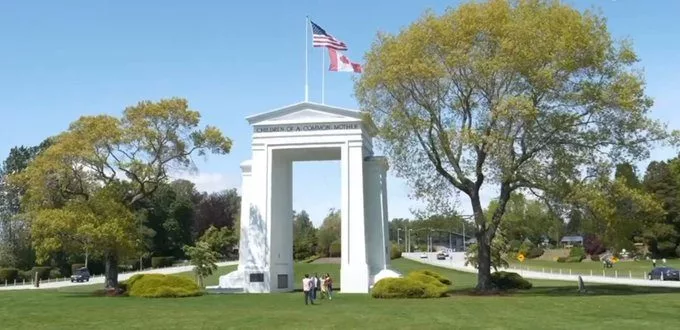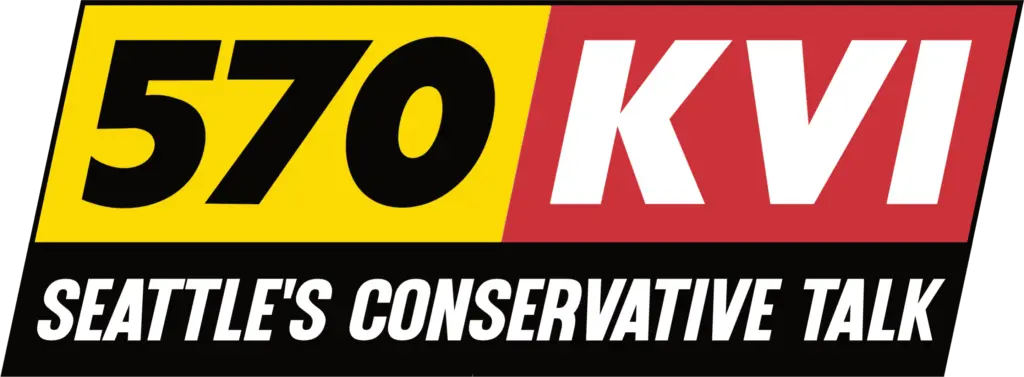
While national attention remains fixed on the U.S. Southern Border, a growing chorus of voices is sounding the alarm about increasing vulnerabilities at the northern border, particularly in Washington State. Independent journalists, including Jonathan Choe, have been documenting what many believe is a dangerously overlooked issue.
In recent months, reports have surfaced of individuals crossing the U.S.-Canada border at the Peace Arch in Blaine, Washington—a popular tourist attraction that, due to its open design, allows people to walk freely between countries. In some instances, illegal aliens are reportedly using ride-sharing services like Uber or Lyft to gain access deeper into the U.S. after crossing.
To address these concerns, The Ari Hoffman Show welcomed Tricia McLaughlin, Assistant Secretary for Public Affairs at the Department of Homeland Security (DHS), for an exclusive interview.
Secretary Noem’s Renewed Focus
McLaughlin emphasized that DHS is taking the northern border seriously under the leadership of Secretary Kristi Noem and former President Donald Trump. “Secretary Noem was just at the northern border about a month ago,” said McLaughlin. “She’s ensuring our border agents have the resources they need—including something as basic as snow-ready tires.”
She noted that while the crisis at the southern border has rightly commanded significant attention and resources, DHS is determined not to neglect the northern front. “We’re seeing drug trafficking and human smuggling up north too. Under President Trump, those numbers were at record lows, but under President Biden, they went up by 200%,” she said.
Crisis on Two Fronts
When asked if the surge in illegal crossings at the northern border under the Biden administration stemmed from a shift in resource allocation or policy neglect, McLaughlin suggested it was both. “Our adversaries saw an opportunity. They knew that either border could be exploited, and there wouldn’t be consequences.”
She stressed that DHS is correcting course by maintaining enforcement on both fronts and sending a clear message: border violations will be met with action.
Sanctuary State Challenges
The conversation also turned local. Hoffman cited a case in Washington State involving an illegal alien accused of killing a state trooper. McLaughlin acknowledged the challenges posed by sanctuary state policies, explaining that Immigration and Customs Enforcement (ICE) often issues detainers requesting local authorities to transfer custody of such individuals.
“It really is a problem,” McLaughlin said. “It hamstrings our ICE operations and makes these cities safe havens for criminal aliens, pedophiles, and gang members. We urge voters to call on their politicians to end sanctuary city policies. It’s like playing Russian roulette with the lives of American citizens.”
Cooperation, Resistance, and the Path Forward
Despite political rhetoric from Democratic leaders in sanctuary states, McLaughlin believes DHS is still able to do its job effectively. “Yes, if sanctuary policies ended, our ICE agents would be fully unconstrained,” she said. “But even now, we are maintaining what is, under this administration, the most secure border in American history.”
According to McLaughlin, that achievement has come just 70 days into the new administration, reflecting a dramatic policy shift that includes tougher messaging, enforcement, and operational coordination.
Hope and Caution
As the interview concluded, Hoffman acknowledged the visible impact of renewed border security, noting a reduction in crime in Washington State as a result. He expressed gratitude for the work of McLaughlin, Secretary Noem, and their teams.
“This is what the American people voted for on November 5th,” McLaughlin concluded. “They said clearly they’re done with mass illegal migration. They want secure borders and they want those here illegally to be deported.”
The conversation underscored a growing political and public consensus: securing all U.S. borders is no longer optional. It’s a national imperative.
Listen to The Ari Hoffman Show weekdays 3-6 pm on Talk Radio 570 KVI, 101.5 FM HD-3, KVI.com, The KVI App and wherever you get your podcasts.






